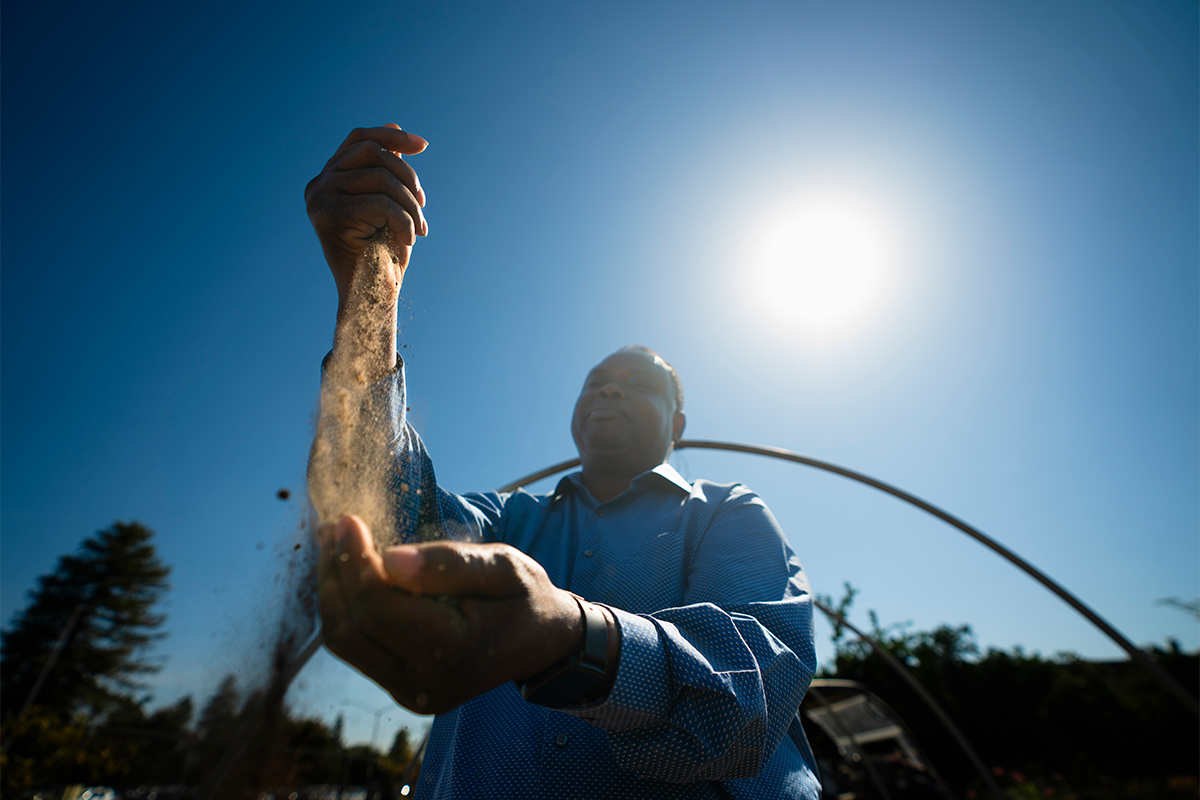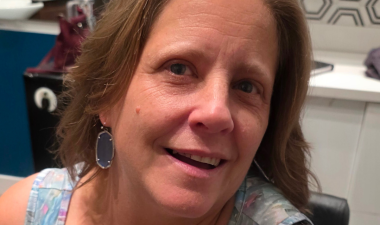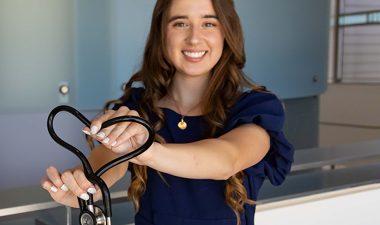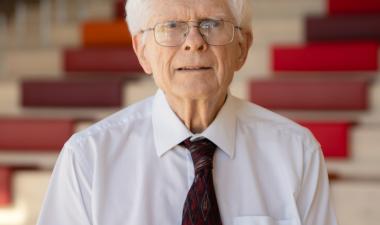The first time Augustine “Austin” Avwunudiogba — known to many students as “Dr. Austin” — applied for a Fulbright U.S. Scholar Award, he wasn’t sure what the outcome would be. When he learned he was selected for the honor, the longtime Stanislaus State geography and environmental resources professor felt a mix of surprise and gratitude.
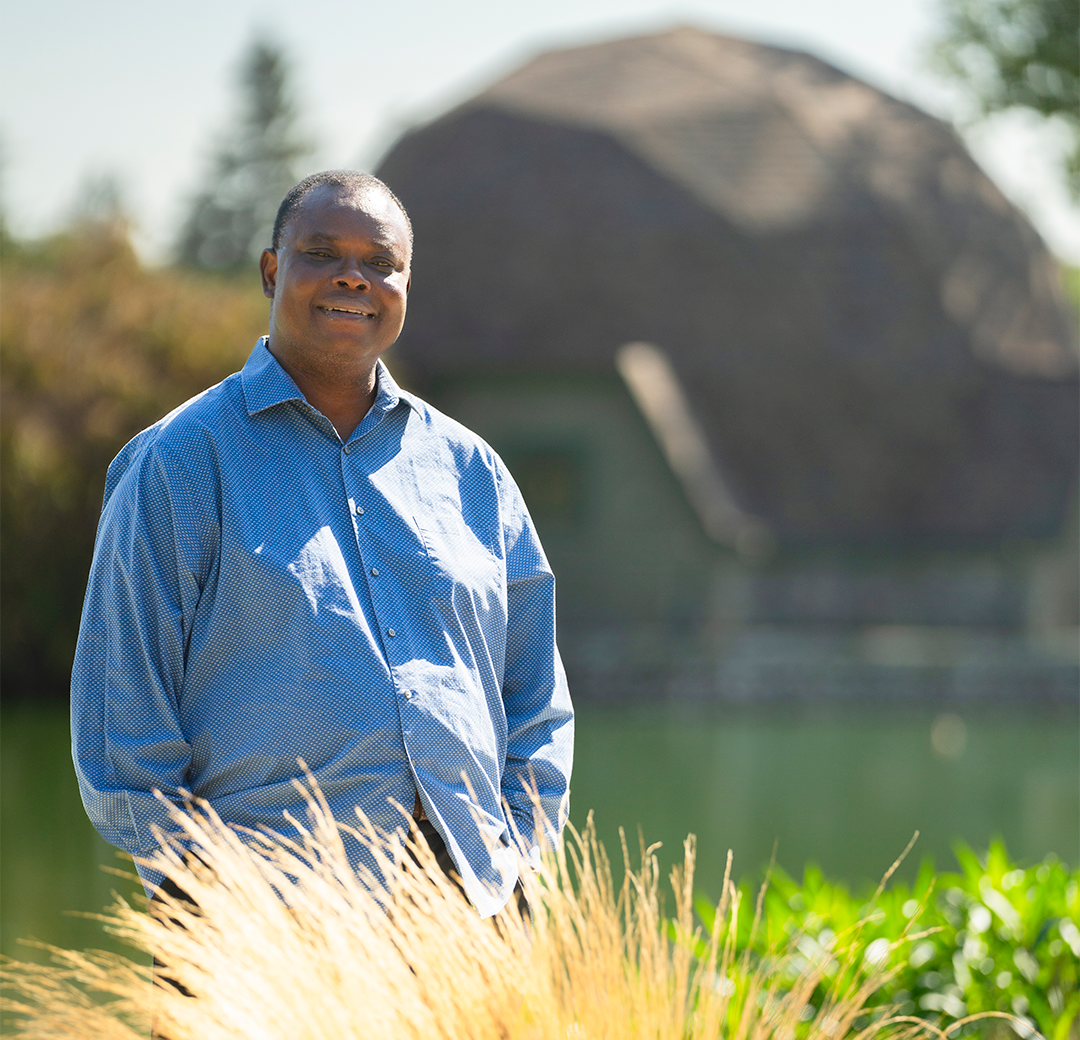
“It was my first time applying for the Fulbright, and I was pleasantly excited that I got it the first time,” he said. “I was proud and said, ‘Wow, this is a big privilege.’ It will enable me to grow professionally, expand my international network and connect my teaching and students with a global perspective.”
Beginning in January 2026, Avwunudiogba will spend eight months in the Department of Remote Sensing and Geoscience Information Systems at the Federal University of Technology in Akure, Nigeria. There, he will teach undergraduate courses in applied remote sensing, participate in curriculum review and conduct workshops on collaborative online international learning. His goal is to contribute to building capacity in geospatial technology while forging ties that benefit both universities.
A Global Classroom
One of the most meaningful outcomes will be the opportunity to link Stan State students with peers in Nigeria through the University’s Collaborative Online International Learning (COIL) program. Future students in GEO 4770 Remote Sensing of the Environment and GEOG 4120 Geomorphology courses will work on joint projects using local data and shared perspectives with their peers in Nigeria.
“My students will engage with students in Nigeria, working together on projects — getting global perspectives within the course structure, without having to travel,” Avwunudiogba said. “It helps to democratize the learning process and gives access to students who may not otherwise be able to study abroad or gain an international perspective and global experience in their education.”
For Stanislaus State, the award underscores how faculty scholarship directly expands opportunities for students, connecting a regional campus to international networks and preparing graduates for success in a global economy.
The Fulbright also brings Avwunudiogba back to his roots. Growing up in rural Nigeria, he was surrounded by nature and intrigued by the ways people and the environment shape each other.
“In high school, I discovered geography was one of those subjects that really focused on nature, especially human-environment interaction: how humans interact with nature, how they change nature over time and how nature impacts human activities,” he said.
That curiosity led him to complete an undergraduate degree in geography in Nigeria and carried him to graduate schools in the United States — first at Southern Illinois University, then at the University of Texas at Austin, where he spent several months doing fieldwork in Mexico as part of his doctoral research — and eventually to Stan State, where he has taught since 2007.
Research with Local and Global Impact
Since joining Stan State, Avwunudiogba and his students have conducted research in the Central Valley, studying various aspects of the geomorphology of the Tuolumne watershed, including floodplain land use, riparian vegetation mapping and soil health assessment in agricultural land.
In the past few years, Avwunudiogba’s scholarship has focused on the human side of geography, where he has addressed contemporary developmental challenges in Africa. His work has spanned issues such as migration, refugees, human trafficking, internally displaced persons (IDPs) and environmental security in Africa, resulting in the publication of several book chapters, the co-edited books, “Human Trafficking” and “Environmental Security in Africa” and valuable course materials for his “Geography of Africa South of the Sahara” course.
With the Fulbright award, he is returning to the physical side of geography, building on his background in fluvial geomorphology — the study of how water interacts with landscapes.
“This Fulbright will allow me to build on that line of research in West Africa,” he said. “That knowledge will also influence my research here in the Valley, especially the Tuolumne River, where I have an ongoing project with my students.”
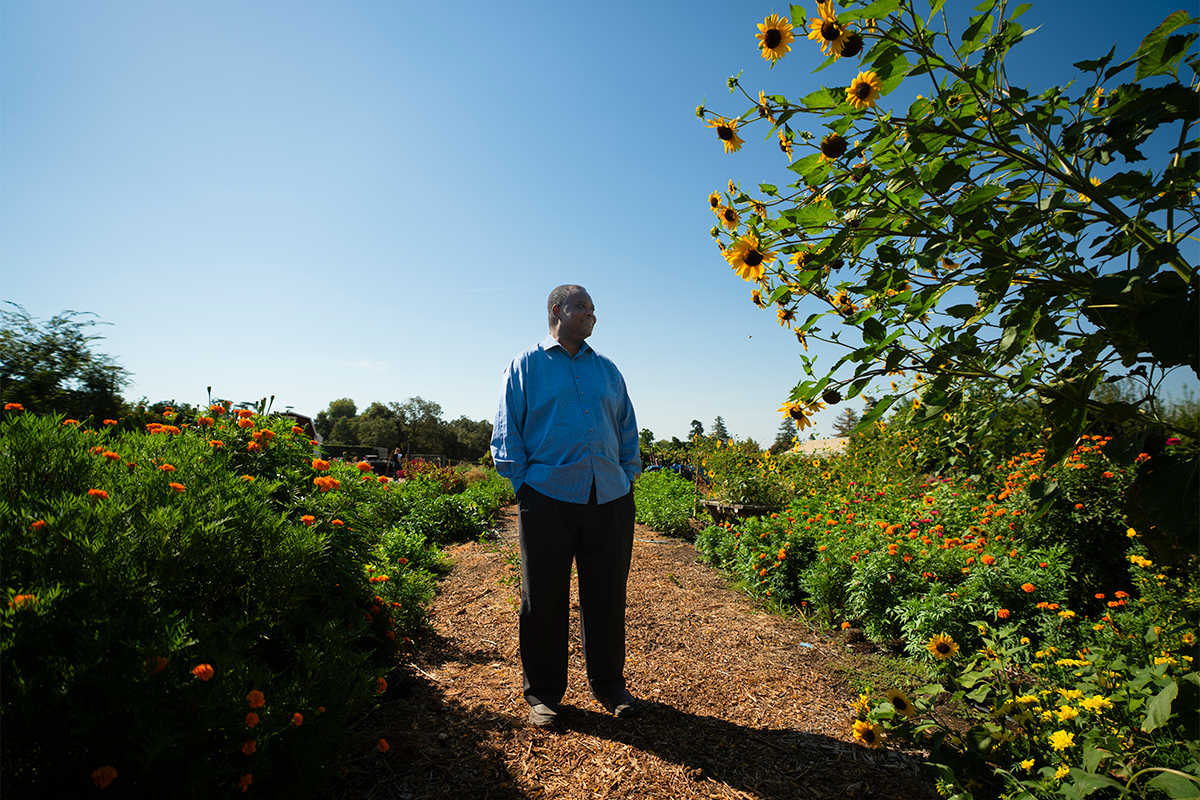
His project in Nigeria will focus on environmental resource management, particularly urban flood hazards mapping, mitigation and adaptation strategies. Different perspectives gained from studies in West Africa, he said, can also help address challenges of urban flood hazards here in the Central Valley and the United States.
By linking research on flooding in both regions, Avwunudiogba’s work exemplifies the University’s role as an anchor institution — tackling issues that matter locally while contributing knowledge globally.
“Dr. Avwunudiogba’s Fulbright U.S. Scholar Award is a powerful testament to the strength of our geography/environmental resources program and reflects his unwavering dedication as a teacher-scholar,” said James Tuedio, dean of the College of the Arts, Humanities and Social Sciences. “His work will enrich his discipline while providing our students with a direct connection to global learning and research. These opportunities are especially meaningful at Stan State, where so many of our students represent the first generation in their families to attend college. We celebrate his success as both a personal achievement and a point of pride for our college.”
Building on a Record of Excellence
The Fulbright is not Avwunudiogba’s first national recognition. In 2019, he was one of just four scientists selected nationwide for the USDA E. Kika De La Garza Science Fellowship, which supported his soil health research and connected him with USDA scientists in Washington, D.C.
“That fellowship was very important for my professional development,” he said. “It took me to Washington, D.C., and to the National Soil Survey Center in Lincoln, Nebraska, where I worked with USDA soil scientists and got training that supported my ongoing research on soil health in the Valley while providing rich teaching materials for my “Intro to Soils” course. But there’s nothing like the Fulbright. The Fulbright tops everything. It’s a recognition of all the hard work you’ve done over the years.”
His recent Carnegie African Diaspora Fellowship award also laid the groundwork for the Fulbright. Over the summer, he spent 52 days at the same department in Akure, researching urban flooding, co-developing curriculum and leading a COIL workshop for faculty and a spatial statistics workshop for graduate students. The Fulbright award will allow Avwunudiogba to continue in this direction and implement some of the proposed COIL courses.
Inspiration for Students
Avwunudiogba hopes the Fulbright inspires students to dream big, and he encourages them to apply for the Fulbright U.S. Student Program.
“I always tell students: Don’t limit your dreams,” he said. “International research is very rewarding. It broadens your knowledge and your network. You make friends who sometimes even become like family. Don’t be discouraged if you don’t get it the first time. Apply again. Seek feedback from professors. Keep knocking on the door — eventually it will open.”
He points to his own journey as proof.
“Coming from Nigeria to the U.S., I never thought I could do it,” he said. “But my journey took me from Nigeria to graduate school here, where I even had the opportunity to do fieldwork in Mexico. That broadened my horizon, and I believe it’s one of the reasons I’m at Stanislaus State today.”
Fulbright recognition for faculty not only elevates the University’s national profile but also demonstrates to students that their professors are leaders in their fields, creating a ripple effect of pride and aspiration across campus.
“The Fulbright U.S. Scholar Award is one of the most prestigious honors an educator can receive, and we are incredibly proud of Dr. Avwunudiogba,” said Stan State Provost Rich Ogle. “This recognition affirms his scholarly excellence and his commitment to students, while also advancing Stanislaus State’s mission to provide transformational, globally relevant learning experiences.
“For a University rooted in the Central Valley, where access and opportunity are central to who we are, his achievement shows the power of faculty success to open new doors for our students.”
Now in his 18th year at Stanislaus State, Avwunudiogba said this recognition affirms the University’s mission and his commitment to students.
“I love teaching at Stanislaus State,” he said. “I’ve taught in other places, but I love it here because this is where I found the perfect balance between being a teacher in the traditional sense and being a university professor. Our students are motivated. When you’re teaching, they’re engaged. And we have support from the University that helps them grow. You get the chance to mentor students one-on-one, and that’s very meaningful to me as a teacher.”
For him, the Fulbright is not just a personal milestone. It’s a continuation of his life’s work to build bridges, expand knowledge and empower students.
“I hope that by the time I’m done teaching, I will have positively impacted my students, given them the confidence to grow and motivated them to spread their wings,” he said. “It makes me feel maybe I’ve contributed in some small way to their success.”
